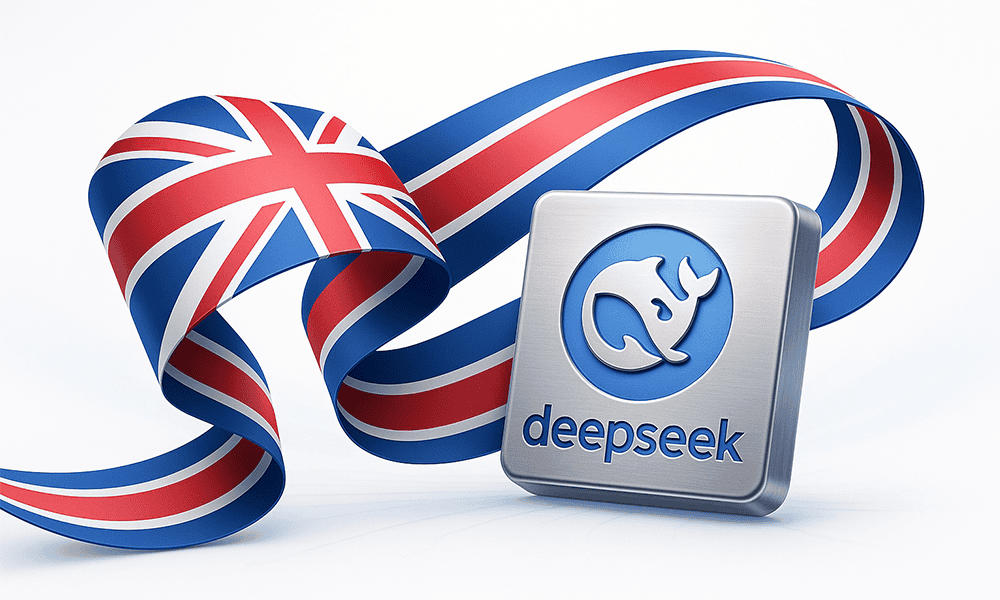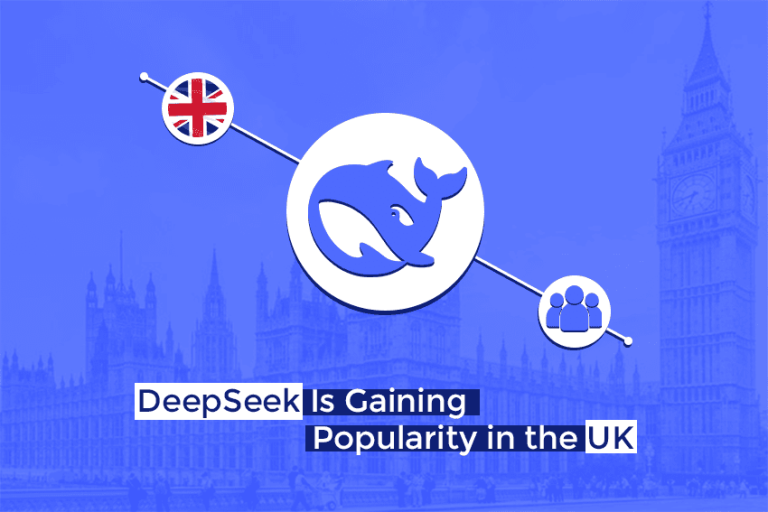The rapid rise of Chinese AI startup DeepSeek is making waves across the global artificial intelligence landscape, and the UK is no exception. With its cutting-edge large language models (LLMs) and open-source approach, DeepSeek is not only challenging established giants like OpenAI but also reshaping the competitive dynamics for UK-based AI startups.

DeepSeek’s Global Impact
Founded in 2023, DeepSeek has quickly gained recognition for its advanced AI models, such as DeepSeek-R1, which excels in tasks like mathematics, coding, and problem-solving. Its cost-effective development—reportedly under $6 million—and open-source availability have made it a formidable player in the AI space. The startup’s free app has already topped the Apple App Store charts in the UK, US, and China, signaling its growing influence.
Challenges for UK Startups
For UK AI startups, DeepSeek’s success presents both challenges and opportunities. On the one hand, the startup’s high-performance models and open-source nature could overshadow smaller businesses. UK startups may struggle to compete with DeepSeek’s advanced capabilities, particularly in areas like reasoning and coding, without significant investment in research and development.
Additionally, DeepSeek’s open-source models allow larger companies to integrate its technology into their products, potentially leaving smaller UK startups at a disadvantage. This could create pressure for local businesses to innovate rapidly or risk being left behind in an increasingly competitive market.
Opportunities for Collaboration and Innovation
Despite these challenges, DeepSeek’s open-source approach also offers opportunities for UK startups. By providing free access to its models, DeepSeek enables developers worldwide to build upon its technology, fostering collaboration and innovation. UK startups could leverage these tools to accelerate their own development, creating unique solutions tailored to local markets.
Moreover, the UK’s thriving AI ecosystem, supported by a strong talent pool and government initiatives, positions it well to adapt to these changes. Startups like ROBIN AI and MAGIC AI, which are already pushing boundaries in AI technology, demonstrate the potential for UK-based companies to carve out their own niche in the global AI landscape.
Looking Ahead
DeepSeek’s emergence underscores the importance of innovation and adaptability in the AI industry. For UK startups, the key to success lies in leveraging the opportunities presented by open-source technologies while addressing the competitive challenges head-on. By focusing on niche applications, fostering collaboration, and investing in research, UK AI startups can not only survive but thrive in this dynamic environment.
As the AI race heats up, the UK’s ability to balance competition with innovation will determine its place in the global AI revolution. DeepSeek’s story is a reminder that in the world of artificial intelligence, disruption is inevitable—but so is opportunity.



